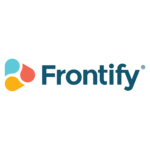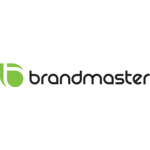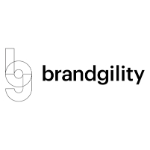TechnologyCounter provides genuine, unbiased real user reviews to help buyers make informed decisions. We may earn a referral fee when you purchase through our links, at no extra cost to you.
List of 15 Best Brand Management Software
Showing 1 - 15 of 59 productsOpenStudio is a software used by architects, engineers, and building professionals to design, model, and optimize energy-efficient buildings. Developed by the National Renewable Energy Laboratory, OpenStudio offers a streamlined is a approach to buil...Read OpenStudio Reviews
Bynder, the leader in innovative content management and digital asset solutions, is revolutionizing the way businesses streamline their creative process. With its user-friendly interface features, Bynder is empowering companies to easily store, organ...Read Bynder Reviews
Outfit is a solution for all your outfit planning needs. Say goodbye to the stress of selecting the perfect look for every occasion because with Outfit, you can effortlessly put together stylish ensembles in no time. From casual outings to formal eve...Read Outfit Reviews
Frontify is a online platform designed to streamline and elevate the way businesses manage their digital assets and brand identities. From organizing and sharing files to collaborating with team members, Frontify offers a user-friendly experience for...Read Frontify Reviews
Brand Center, your go-to platform for managing all aspects of your brand. With its user-friendly interface features, Brand Center streamlines all of your branding efforts in one central location. From brand guidelines and asset management to collabor...Read Brand Center Reviews
BrandSpot is a software designed to streamline your brand management and marketing process. With its user-friendly interface features, BrandSpot empowers businesses of all sizes to create, manage and distribute their brand assets efficiently. Enhance...Read BrandSpot Reviews
Brandox is a visual identity management software. Designed to streamline the branding process, Brandox provides a simple is a solution for creating and organizing all brand assets in one centralized platform. With Brandox, businesses can easily maint...Read Brandox Reviews
Mayple is a platform connecting businesses with expert marketing professionals. By matching the right expert to each project, Mayple ensures top-quality results and measurable success. With a focus on collaboration and transparency, Mayple empowers b...Read Mayple Reviews
Brandgility is more than just a software, it is a complete solution for businesses to empower their brand and elevate their marketing efforts. With Brandgility, businesses can easily manage, distribute and customize all their marketing assets, ensuri...Read Brandgility Reviews
Brandy is a dynamic and innovative software that is revolutionizing the way you manage your workload. With its user-friendly interface features, Brandy streamlines your tasks and boosts productivity. Say goodbye to the traditional methods and hello t...Read Brandy Reviews
MarCom On Demand is a solution for all your marketing and communication needs. This innovative software streamlines and simplifies your marketing processes, helping you reach your target audience with precision and efficiency. With MarCom On Demand,...Read MarCom On Demand Reviews
Youzign is a graphic design software that allows you to easily create professional and eye-catching designs for all your branding and marketing needs. With its user-friendly interface and powerful features, effortlessly bring your ideas to life and s...Read Youzign Reviews
Rallio is a software designed for businesses looking to enhance their social media presence and grow their brand. With its user-friendly interface and innovative tools, Rallio empowers businesses to efficiently manage their social media content, enga...Read Rallio Reviews
BrandFacets is a solution for enhancing your brands online presence. With its advanced features and user-friendly interface, BrandFacets allows you to easily manage and monitor your brands reputation, social media reach, and customer feedback. Say go...Read BrandFacets Reviews
Lytho is a solution for all your content management needs. This innovative software revolutionizes the way you handle your digital assets, making them easily accessible and shareable. With Lytho, say goodbye to scattered files and hello to organized,...Read Lytho Reviews
- What Is Brand Management Software?
- Top Reasons Why Businesses Need Brand Management Software?
- What Are the Top Key Features of Brand Management Software?
- What Are the Top Benefits of Brand Management Software?
- What Are the Steps to Choose the Right Brand Management Software?
- What Are the Types of Brand Management Software for Different Industries?
- What Are the Technology Trends for Best Brand Management Software?
- What Are the Deployment Options for Brand Management Software?
What Is Brand Management Software?
Brand management software is a type of computer software designed to assist organizations in effectively managing and organizing their assets and brand-related information.
The purpose of this system is to facilitate the comprehensive management of a company's brand process, encompassing several aspects such as logo development, name selection, slogan creation, product and service promotion, and the monitoring of consumer feedback.
This program facilitates the storage, organization, and generation of various brand-related assets, encompassing photographs, papers, videos, and other relevant resources, for enterprises. The utilization of brand management platform enables users to effectively monitor their digital footprint and engage in cross-functional collaboration to spot patterns and issues, so ensuring the maintenance of a cohesive brand image.
Additionally, this platform has analytical tools for monitoring the efficacy of diverse efforts, as well as providing real-time updates to assess the influence of brand investments and campaigns. In summary, Brand Management Software facilitates enhanced management of firms' online presence and brand identity.
Top Reasons Why Businesses Need Brand Management Software?
1. Building brand recognition: Brand management software facilitates the seamless generation, customization, and dissemination of branded material to specific target demographics, hence fostering heightened brand awareness through consistent and precise messaging.
2. Generating leads: Companies have the ability to generate sales possibilities by developing compelling brand content that captivates their target audience.
3. Enhancing customer experience: Through the provision of personalized content and on-brand experiences, users are able to establish immediate connections with the brand, thereby enhancing their entire user experience.
4. Increasing brand visibility: Brand management platform enables organizations to generate visually appealing images and logos in order to enhance their visibility, while simultaneously guaranteeing that all materials adhere to the established brand guidelines.
5. Attracting new customers: Brand management plays a crucial role in facilitating customer acquisition for organizations, as it enables them to leverage compelling and impactful content.
6. Creating campaigns easily: The utilization of online brand management software facilitates the seamless coordination of campaigns, ensuring a consistent visual identity and messaging strategy across various communication platforms for firms.
7. Decreasing production costs: Businesses can achieve cost savings in production by consolidating all brand content into a single platform, hence eliminating the need for different campaigns.
8. Brand associations: By utilizing a unified and authoritative source, enterprises can ensure the accurate association of their brand material with relevant individuals, locations, and entities.
9. Easier compliance: The utilization of templates inside brand management systems obviates the necessity for manual work in the process of generating material that adheres to industry regulations.
10. Improving efficiency: The brand management platform reduces the inefficiency associated with manual operations by optimizing processes.
11. Improved communication: The utilization of online brand management software facilitates effective communication with stakeholders, thereby providing a cohesive understanding and alignment of the brand message among all parties involved.
12. Insightful Rich Analytics: Brand management systems facilitate the generation of informative analytics that enable the assessment of a brand's campaign efficacy and the formulation of data-informed decisions.
13. Improved decision-making: By utilizing dashboards and data created by the software, businesses are able to make well-informed decisions regarding their campaigns and strategy.
14. Easy collaboration: The brand management platform facilitates enhanced collaboration among teams and fosters improved interdepartmental communication.
15. Enhancing brand reputation: Through the regular delivery of high-quality content and services, organizations have the opportunity to enhance their brand reputation and foster increased consumer loyalty.
What Are the Top Key Features of Brand Management Software?
1. Brand Performance Tracking: Brand management software allows marketers to monitor the efficacy of their brands in relation to client expectations, competitors, and prevailing industry trends.
2. Asset Management: Brand management tools facilitate the consolidation of various brand-related digital assets, encompassing visual assets, films, campaigns, product photographs, and design elements, into a single storage system.
3. Reputation Management: The utilization of brand management platform facilitates the examination of online mentions and contributes to the establishment of a favorable brand image.
4. Analytical Insights: The utilization of brand management tools facilitates the acquisition of valuable insights pertaining to customer behavior, brand emotion, and competition plans by the team.
5. Campaign Management: An online brand management software enables marketers to efficiently and proficiently develop, implement, and evaluate marketing programs.
6. Audience Segmentation: The utilization of a brand management platform enables the segmentation of audiences by leveraging customer attributes like as age, gender, location, purchase history, and various other characteristics.
7. Brand Guidelines and Consistency: Brand management tools facilitate the establishment of brand guidelines and the maintenance of consistent brand messaging across many communication channels for organizations.
8. Automation: Brand management systems are a valuable tool that enables brands to optimize several operational aspects, such as client onboarding, content creation, and reporting.
9. Social Media Management: Brand management platform offers a comprehensive platform for the management of social media, facilitating marketers in content creation, customer engagement, and performance evaluation.
10. Customer Relationship Management: The utilization of the best brand management software facilitates enhanced administration of client interactions for firms, including activities such as monitoring customer campaigns and gathering customer feedback.
What Are the Top Benefits of Brand Management Software?
1. Effective marketing campaigns: The utilization of the best brand management software has the potential to assist organizations in the successful implementation of marketing initiatives. This tool has the capability to monitor marketing campaigns, conduct in-depth analysis of outcomes, and make necessary adjustments based on the findings.
2. Improved customer retention: By utilizing brand management tools, organizations have the capability to enhance client interactions and foster more consumer loyalty.
3. Increased brand visibility: The utilization of brand management platform facilitates the monitoring and augmentation of brand visibility. This may encompass the process of enhancing the brand's website, establishing accounts on various social media platforms, and engaging in online marketing endeavors.
4. Enhanced reputation management: By utilizing brand management tools, organizations are able to enhance their ability to successfully oversee and control their reputation. This encompasses activities such as attending to client questions, overseeing consumer feedback, and resolving customer complaints.
5. Streamlined advertising: An online brand management software is a valuable tool for firms as it aids in the efficient distribution of marketing campaigns, optimization of advertising channels, and tracking of advertising performance.
6. Improved analytics: The utilization of brand management systems enables the monitoring and analysis of many metrics, including web page views, click-through rates, and keyword searches. This might afford organizations with enhanced knowledge regarding the performance of their brand.
7. Cost savings: The utilization of brand management platform has the potential to enhance business efficiency by reducing time and resource expenditure, hence resulting in heightened productivity levels. This has the potential to result in long-term cost reductions.
What Are the Steps to Choose the Right Brand Management Software?
1. Identify your needs: Please identify the essential features and capabilities required by your organization in a best brand management software. When evaluating options, it is important to take into account several factors such as budgetary considerations, scaling potential, and integration capabilities.
Furthermore, it is vital to take into account any particular obstacles or goals that your enterprise may possess, which require attention and resolution.
2. Research vendors: Conduct a comprehensive assessment of vendor websites in order to ascertain the brand management systems that most effectively aligns with your specified requirements. The primary areas of interest are distinguishing factors, evaluations from users, and available customer support alternatives.
3. Get budget approval: Collaborate with the finance department in order to obtain authorization for the acquisition and to determine the most suitable payment alternative (monthly, annually, or one-time payment) based on your requirements.
4. Request a demo or trial: To obtain a more comprehensive assessment of the product, it is advisable to establish contact with the vendor in order to arrange a demonstration or trial. Throughout this procedure, it is vital to inquire about the many attributes, pricing structure, and quality of customer service in order to facilitate an informed and judicious choice.
5. Make the purchase: After successfully identifying the appropriate brand management software that aligns with your requirements and obtaining the necessary budgetary authorization to proceed with the acquisition, you are now prepared to conclude the purchase.
What Are the Types of Brand Management Software for Different Industries?
Brand management software is utilized to facilitate control, supervision, and enhance efficiency in brand operations across many platforms and channels. The selection of software might exhibit variability contingent upon the magnitude and extent of the organization, as well as the sector within which it functions.
Brand management tools are utilized by retail and hospitality firms to enhance and streamline the consumer experience across several platforms, including in-store, mobile applications, and website optimization. The brand management platform in question often prioritizes customer acquisition, customer retention, and customer loyalty.
Brand management systems is advantageous for manufacturing and logistics organizations as it is specifically built to automate several activities. These procedures include but are not limited to ordering and tracking, material tracking, inventory management, and order fulfillment.
The utilization of this software facilitates the simplification of intricate procedures, enhances operational effectiveness, and contributes to the optimization of supply chain activities. Healthcare professionals have the ability to utilize brand management software for the purpose of storing patient information and monitoring medical outcomes.
This particular program offers patient portals that facilitate instantaneous communication and health monitoring. Furthermore, it enables the tracking of Order%-File-Transfer (OFT) and Electronic Health Record (EHR). Educational institutions heavily depend on software applications to effectively handle data management, assure adherence to governmental rules, and facilitate administrative and student-oriented procedures.
This software is constructed using extensive databases capable of storing records, managing attendance, facilitating billing processes, and offering educational resources for both students and staff members. In addition, brand management tools are employed by professional service providers to facilitate their operational processes.
This encompasses software applications designed for various purposes like as client onboarding, invoice administration, scheduling and job management, and customer service. This particular program is designed to monitor and record many aspects of client contacts, leads, projects, revenue, and other related metrics.
In summary, the selection of brand management software is contingent upon the company's size, scope, and industry. Software is utilized for the purpose of automating various procedures, optimizing operations, effectively managing consumer and patient data, and ensuring adherence to regulatory requirements.
What Are the Technology Trends for Best Brand Management Software?
In recent years, there has been substantial growth in the utilization of the best brand management software, with numerous firms embracing this technology to enhance efficiency and consolidate their complete brand portfolios.
Therefore, the current technological advancements in brand management software mostly emphasize enhancing client experience, augmenting automation capabilities, and optimizing data accessibility. Several significant developments have surfaced in recent years, namely mobile-first design, advanced analytics, and the integration of social media.
The significance of mobile-first design is growing as firms strive to guarantee the seamless accessibility of their products across various smartphones and tablets. This entails the implementation of a design that maintains consistency across various devices and is tuned to accommodate varied screen sizes.
The significance of advanced analytics in brand management software is increasing due to its ability to provide enhanced insights and comprehension of customer behaviors. This tool can be utilized to discern client patterns, optimize targeting of specific demographic segments, and adapt plans accordingly.
The integration of social media is crucial for contemporary brand management as it enables brands to capitalize on content provided by customers and expand their reach to a broader demographic. This encompasses the capacity to oversee customer involvement, address consumer inquiries, and comprehend customer interactions with the brand.
By staying abreast of these emerging patterns, enterprises will be capable of more effectively overseeing their brand and providing exceptional consumer experiences.
What Are the Deployment Options for Brand Management Software?
Various deployment options exist for brand management software. The primary deployment options are outlined below.
1. On-premise: The on-premise deployment model enables organizations to get a licensed version of the program and subsequently install it on their own computer systems.
This approach provides users the ability to utilize the complete range of features offered by the software, as well as affording them greater autonomy in terms of configuring and updating it.
2. Cloud-based: Cloud-based deployment enables organizations to remotely access software applications via the internet, facilitating the ability to effectively manage their brand from any location.
One primary benefit associated with this particular deployment choice is the elimination of the requirement for corporations to engage in the management or maintenance of the program on their premises.
3. Hybrid: Hybrid deployment refers to the integration of both on-premise and cloud-based deployment methods.
The utilization of this particular deployment method is experiencing a growing trend due to its ability to provide firms with the option to access their brand management software either on-premise or via the cloud, depending on their specific requirements.















